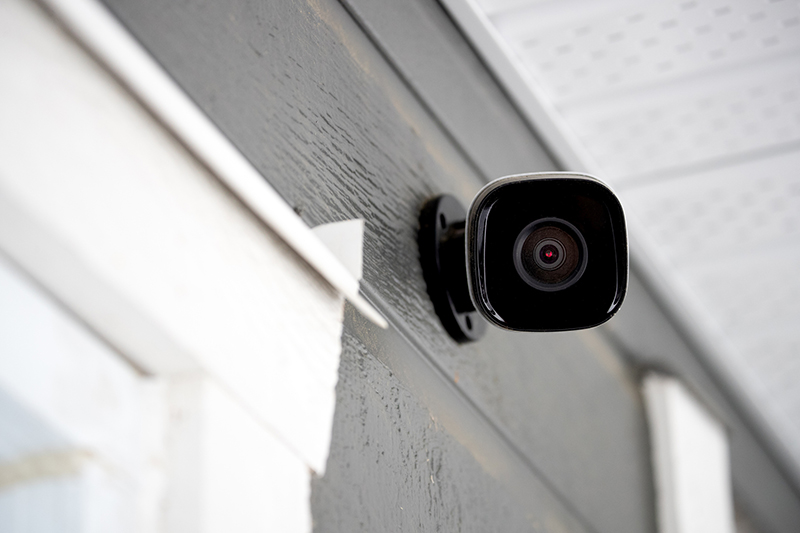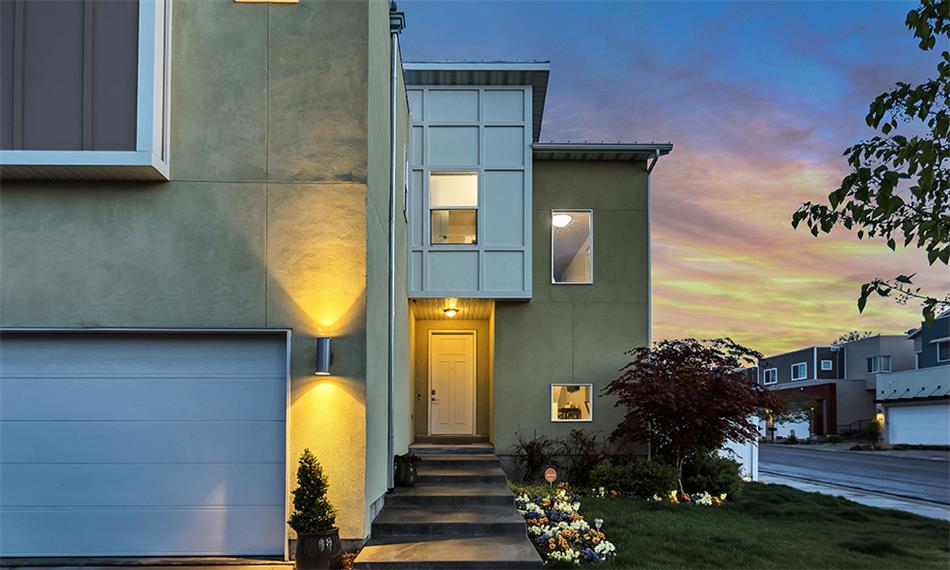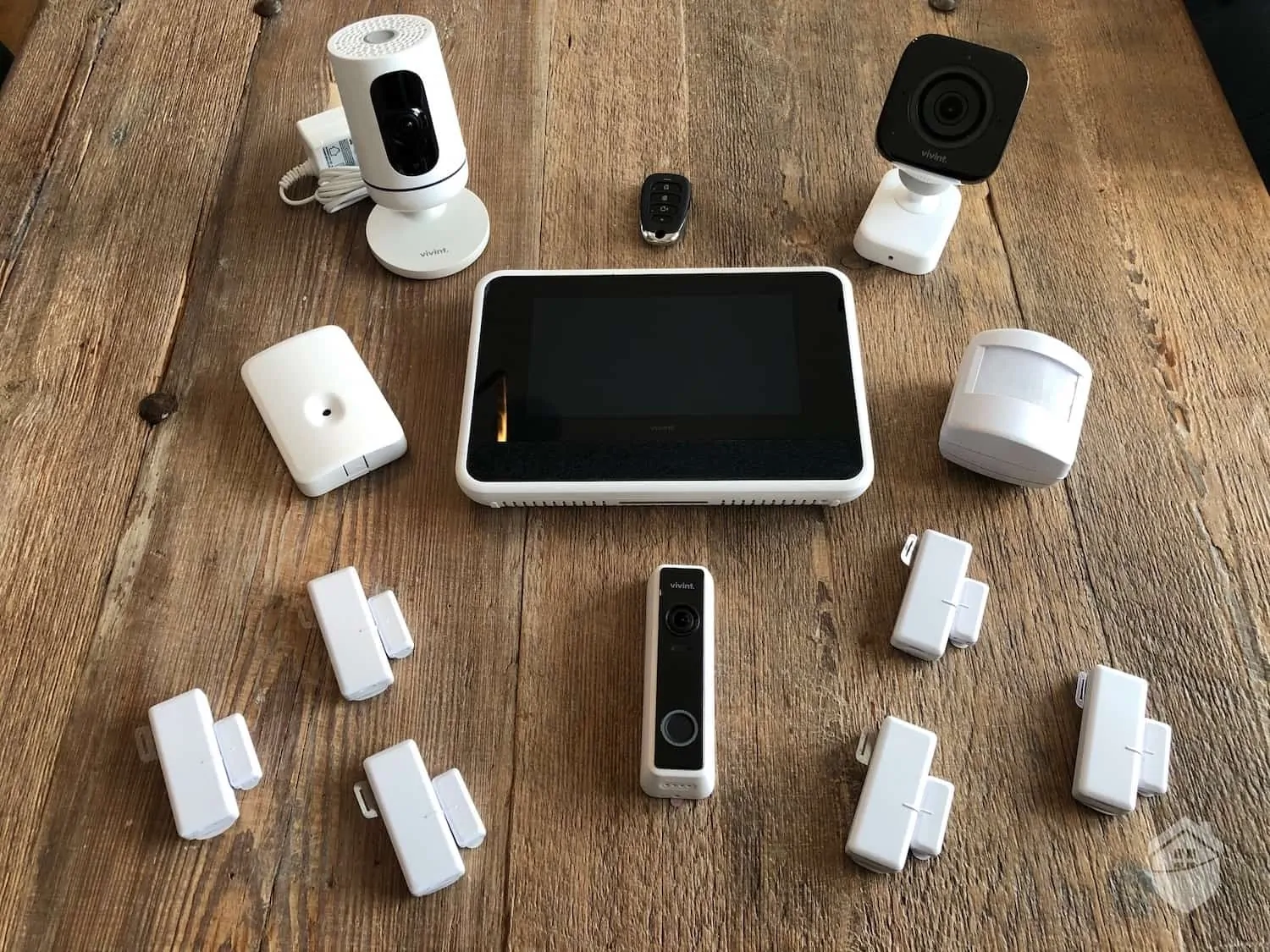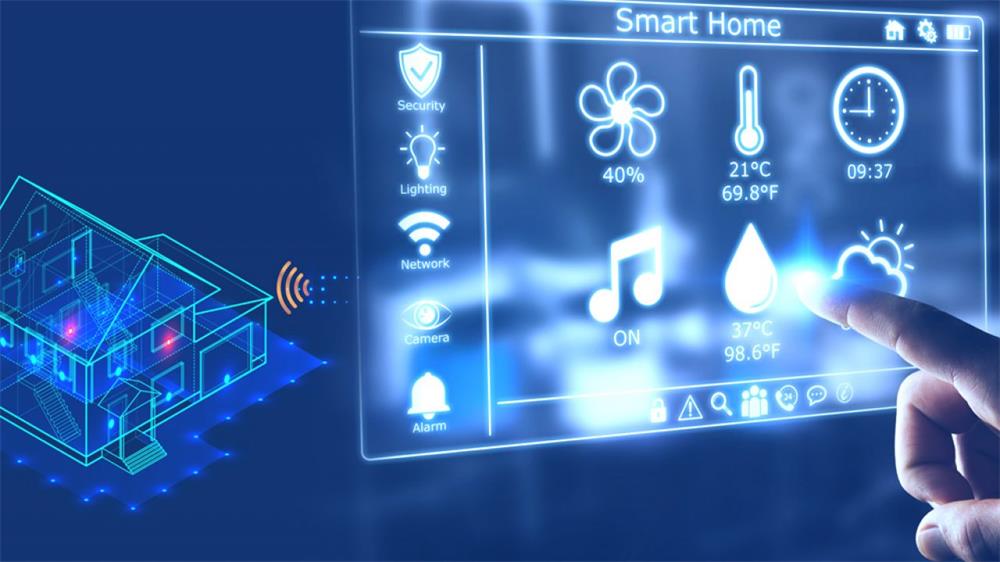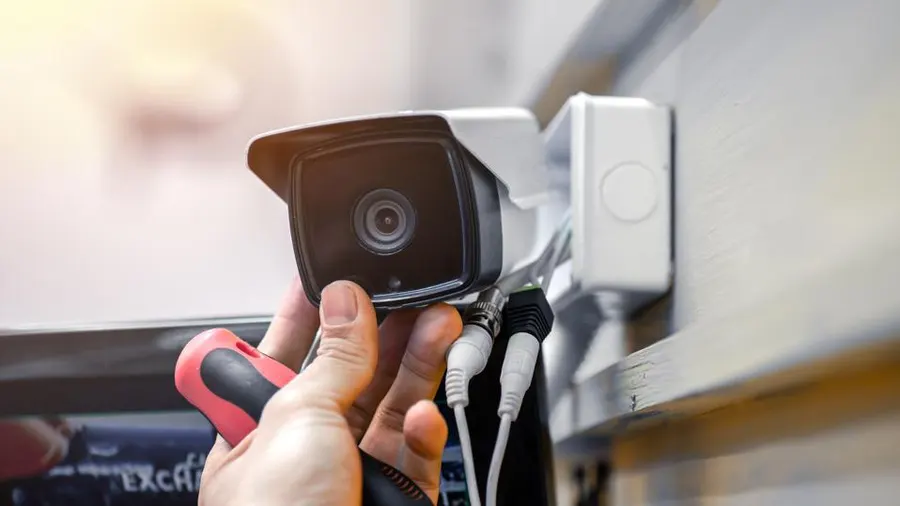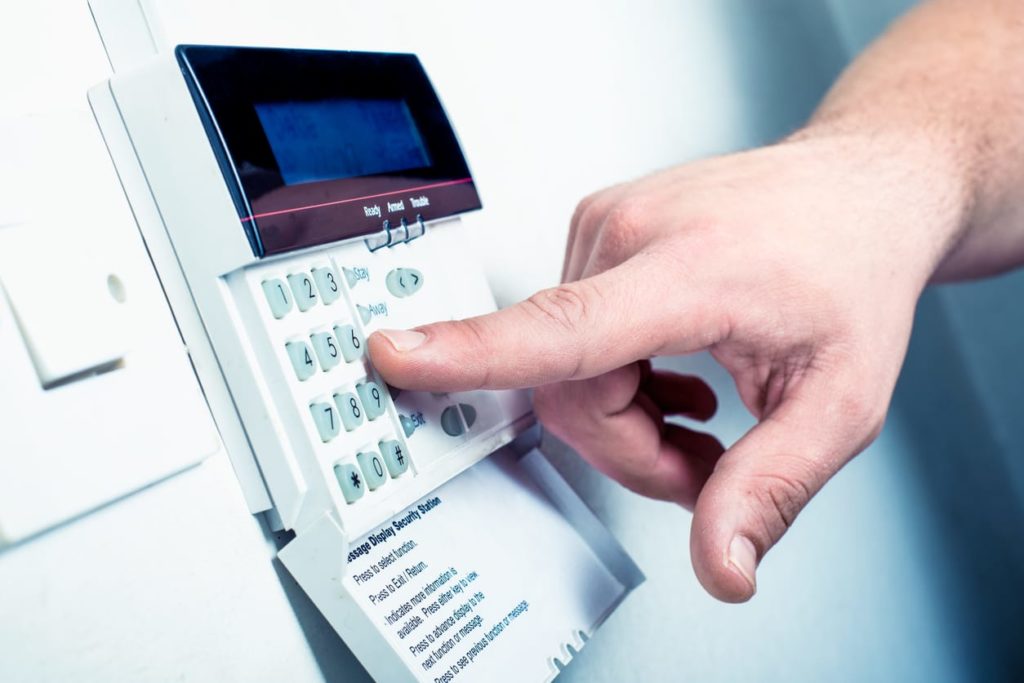Contents
DIY Home Security vs. Professional Monitoring: Weighing the Pros and ConsHome security is a top priority for many homeowners, and with advancements in technology, there are now more options than ever before when it comes to protecting your property. One of the biggest decisions you’ll have to make is whether to go with a DIY home security system or opt for professional monitoring. Both options have their advantages and disadvantages, so it’s important to weigh them carefully before making a decision.
What is DIY Home Security?
DIY home security systems are designed so that anyone can install them without professional help. These systems typically include wireless sensors, cameras, motion detectors, and alarms that can be set up using simple instructions and basic tools. With a DIY system, you have the flexibility to customize your security setup according to your preferences and budget.
What is Professional Monitoring?
Professional monitoring involves hiring a third-party company to monitor your home security system 24/7. This entails having trained professionals on standby in case an alarm goes off or an emergency arises. In addition to real-time monitoring, professional companies may also offer additional features such as remote access, video surveillance, and home automation services.
The Importance of Weighing the Pros and Cons
When it comes to choosing between DIY home security or professional monitoring, there’s no one-size-fits-all answer. It all depends on individual needs and preferences.
However, weighing the pros and cons carefully can help you make an informed decision that fits your lifestyle and budget. Choosing between DIY home security or professional monitoring can be overwhelming at first glance.
The key is understanding what each option brings to the table in terms of benefits versus drawbacks. In this article, we’ll explore each option in detail so that you can make an informed choice that meets your needs while keeping your family safe.
Pros of DIY Home Security
Cost-effective option for homeowners on a budget
Home security is a priority for all homeowners, but it can be expensive to install and maintain a professional monitoring system. That’s where DIY home security comes in as a cost-effective solution that allows homeowners to secure their homes without breaking the bank. With DIY systems, you can purchase and install your own equipment, saving you money on installation and labor costs.
Moreover, most DIY home security systems come with smart technology that allows you to monitor your home remotely through an app on your smartphone or tablet. This feature eliminates the need for costly monthly subscription fees and gives you complete control over your home security system, making it an ideal choice for those who want to save money.
Flexibility to customize and install the system according to personal preferences
One of the biggest benefits of DIY home security is that it offers complete flexibility when it comes to customizing and installing the system according to personal preferences. You can choose which type of sensors you want, how many cameras you need, where they go and how they’re installed—all based on what works best for your unique living situation.
Additionally, with a DIY system, there are no contracts or obligations so homeowners have complete freedom in modifying their setup as needed. Unlike traditional vendors where changes require additional fees or even signing up for a new contract entirely.
No monthly fees or contracts
Another significant advantage of using a DIY home security system is that there are no monthly fees or contracts involved. In contrast, professional monitoring services typically require customers sign up for long-term service agreements with substantial cancellation fees if terminated early. With no required contracts or subscriptions needed with most popular self-install solutions such as SimpliSafe ensure greater control over costs not only during installation but throughout ownership as well.. This also ensures flexibility should plans change: homeowners can add and remove devices or cancel service altogether at any time without penalty.
Cons of DIY Home Security
Lack of Professional Monitoring Can Lead to Delayed Response Times in Emergencies
One major downside of DIY home security systems is the lack of professional monitoring. While these systems may have alerts that notify homeowners when a break-in or emergency occurs, there is no guarantee that anyone will be immediately available to respond.
Without professional monitoring, homeowners may have to rely on neighbors or the police to respond in case of an emergency. Furthermore, response times can be delayed if homeowners are not readily available to receive notifications from their system.
If you’re away from home or don’t have your phone on you, you may miss an important alert and not be able to take action until it’s too late. This delay could mean the difference between catching a burglar in the act and losing valuable possessions.
Limited Technical Support and Troubleshooting Resources
Another potential drawback of DIY home security systems is the lack of technical support and troubleshooting resources. While some companies selling these types of systems offer customer support, it may not be as comprehensive as what’s offered by professional monitoring services.
Homeowners who choose DIY security must rely on themselves for system maintenance and repairs, which can be challenging if they don’t have experience with electronics or wiring. Troubleshooting may involve trial-and-error methods that waste time and energy while still resulting in a subpar security system.
Potential for False Alarms or System Malfunctions Due to Improper Installation
Improper installation can compromise the effectiveness of a DIY home security system, leading to false alarms or system malfunctions. Inexperienced individuals doing the installation can overlook crucial details such as proper sensor placement or wiring connections. This could lead homeowners into thinking there’s an intruder when there isn’t – causing unnecessary stress on law enforcement officials who respond – or failing to detect an actual break-in.
To avoid such problems, homeowners should carefully follow the instructions provided and research proper installation techniques to ensure the system is installed correctly. If anything goes wrong during installation, professional monitoring services can quickly provide assistance to fix the issues.
Pros of Professional Monitoring
24/7 Monitoring by Trained Professionals Who Can Quickly Respond to Emergencies
One of the biggest advantages of professional monitoring is that it provides a level of security that DIY systems simply can’t match. With a professional monitoring service, your home is monitored 24 hours a day, 7 days a week by trained professionals who can quickly and accurately respond to emergencies.
This means that if an intruder breaks into your home or if there’s a fire or other type of emergency, you can rest assured that help will be on the way as soon as possible. Professional monitoring services typically use state-of-the-art technology to monitor your home, including sensors that detect any unusual activity, such as movement or changes in temperature.
If something out of the ordinary is detected, the monitoring center will immediately contact you to verify whether it’s a false alarm or an actual emergency. If it’s an emergency, they will dispatch local law enforcement or emergency responders to your home right away.
Access to Advanced Technology and Equipment That May Not Be Available with DIY Systems
Another advantage of professional monitoring is access to advanced technology and equipment that may not be available with DIY systems. Professional monitoring companies invest heavily in research and development to ensure they are always at the forefront of innovation when it comes to security technology.
This means that when you choose professional monitoring for your home security needs, you’ll have access to some of the most advanced security equipment available on the market today. This includes high-tech sensors for detecting movement and other types of activity around your property, as well as cameras and other surveillance equipment for keeping an eye on things even when you’re not at home.
Additional Features Such as Remote Access, Video Surveillance, and Home Automation
One more advantage of professional monitoring services is the additional features they offer beyond just basic security. Many professional monitoring companies offer remote access to your security system, which means you can check on your home at any time from anywhere using your smartphone or tablet.
In addition, many professional monitoring services include video surveillance as part of their packages, allowing you to keep an eye on your property in real-time and view recordings of any activity that occurs. And with home automation features, you can control things like your lights, HVAC system, and even door locks remotely, giving you complete control over your home no matter where you are.
Cons of Professional Monitoring
Higher upfront costs for equipment and installation fees
One of the main drawbacks of professional monitoring is the initial cost. Compared to DIY systems, professional monitoring systems often require a higher upfront investment for both the equipment and installation fees.
However, it’s important to consider the long-term benefits when making this decision. Professional systems usually provide more advanced technology and features that may not be available in a DIY system.
Additionally, some professional monitoring companies offer financing options or packages that include installation at no additional cost. It’s also worth noting that investing in a high-quality system can provide peace of mind and potentially increase the value of your home.
Monthly subscription fees that can add up over time
Another disadvantage to professional monitoring is the monthly subscription fee required to maintain service. Depending on the provider and package chosen, these fees can add up over time and become costly.
However, it’s important to weigh this cost against the benefits of having reliable 24/7 monitoring by trained professionals who can quickly respond to emergencies. The monthly fee also covers technical support and maintenance services, which may be beneficial for those who aren’t tech-savvy or don’t have time for DIY troubleshooting.
Limited customization options compared to DIY systems
Professional monitoring systems often come with pre-set packages and limited customization options compared to DIY systems. This lack of flexibility means homeowners may not be able to fully personalize their security system according to their specific needs or preferences.
However, some providers offer add-on features such as video surveillance or home automation that can increase customization options without sacrificing professional monitoring services. It’s important to research different providers and packages before making a decision in order to find one that meets individual needs while still providing reliable security services.
Conclusion
Both DIY home security and professional monitoring have their distinct advantages and disadvantages. While DIY systems are a cost-effective option for budget-conscious homeowners, they may not provide the same level of security and peace of mind that professional monitoring offers.
On the other hand, professional monitoring may be an expensive option upfront, but it comes with advanced technology, 24/7 monitoring by trained professionals, and additional features such as remote access, video surveillance, and home automation. Ultimately, the decision between DIY home security or professional monitoring depends on individual needs, preferences, and budget constraints.
Before making a choice, homeowners should evaluate their priorities in terms of safety and convenience. If one values quick response times to emergencies and advanced technology features over lower costs or customization options then they should opt for professional monitoring systems.
It’s important to note that whichever option homeowners choose—DIY or professional—both can provide adequate protection for your home. By taking careful consideration before investing in a system that addresses your particular needs will ensure peace of mind at all times.



